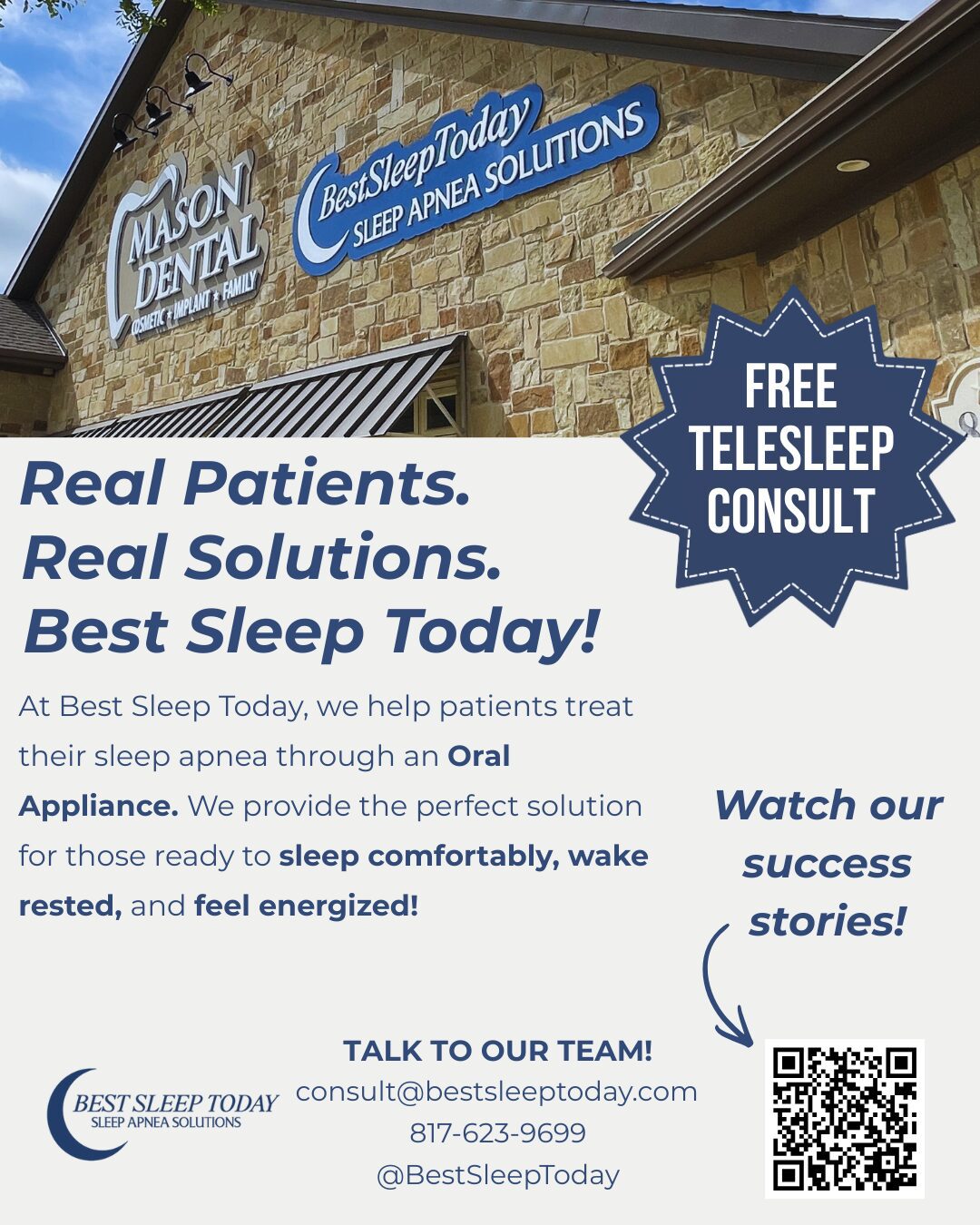Sleep apnea is often thought of as a condition that affects physical well-being, primarily causing disruptions to breathing during sleep. However, its impact goes far beyond just a restless night’s sleep. Studies have shown that sleep apnea plays a significant role in contributing to mental health conditions, making it a critical concern for those struggling with anxiety, depression, or other mood disorders. At Best Sleep Today in Grapevine, TX, led by the experienced Dr. Scott Mason, our mission is to raise awareness about sleep apnea’s connection to mental health and provide effective treatments that can transform lives.
Understanding Sleep Apnea and Its Effects
Sleep apnea causes repeated interruptions to your breathing while you sleep. These interruptions can last anywhere from a few seconds to a minute, leading to poor-quality and fragmented sleep. Without restorative sleep, your brain doesn’t get the chance to recharge, which can lead to numerous consequences for both your physical and mental health.
Some symptoms of untreated sleep apnea include excessive fatigue, irritability, and difficulty concentrating. However, the ripple effects often extend to serious mental health concerns.
The Link Between Sleep Apnea and Mental Health
Poor-quality sleep directly affects the brain’s ability to regulate emotions, manage stress, and process negative experiences. Over time, untreated sleep apnea can lead to or exacerbate the following mental health conditions:
- Depression: Studies show a strong association between sleep apnea and depressive symptoms, such as persistent sadness, lack of motivation, and hopelessness. Sleep apnea sufferers are also more likely to feel fatigued, which can worsen depressive moods.
- Anxiety: Interrupted sleep cycles caused by sleep apnea can increase levels of stress hormones like cortisol. This heightened stress response can contribute to generalized anxiety or even panic attacks.
- Cognitive Decline: Sleep apnea doesn’t just affect emotions; it can impair memory, focus, and decision-making. Over time, this decline in cognitive abilities may negatively affect work, relationships, and daily activities, further impacting mental health.
- Mood Disorders: Beyond depression and anxiety, individuals with sleep apnea may experience mood swings, irritability, and even symptoms of bipolar disorder caused by chronic sleep disruption.
Sleep Apnea Treatment and Your Mental Health
The good news is that sleep apnea is a treatable condition, and seeking help can lead to life-changing results. At Best Sleep Today in Grapevine, TX, including the surrounding areas of Colleyville and Southlake, Dr. Scott Mason provides personalized care for individuals struggling with sleep apnea.
Treatment options, such as oral appliances or CPAP therapy, are designed to restore proper breathing during sleep, improving the quality of rest you receive every night. This not only alleviates the physical symptoms of sleep apnea but also gives your brain the chance to function at its best, which can significantly relieve mental health challenges.
Many patients report better focus, improved emotional stability, and reduced symptoms of anxiety and depression after beginning sleep apnea treatment. By addressing the root cause of poor-quality sleep, you can take an important step toward achieving both physical and mental well-being.
Take Control of Your Sleep and Mental Health Today
If you’ve noticed that poor sleep is affecting your mood, relationships, or overall quality of life, it may be time to address an underlying cause like sleep apnea. At Best Sleep Today with Dr. Scott Mason, we’re here to help you take control of your sleep and, in turn, your mental health.
Don’t wait to reclaim the restful sleep and peace of mind you deserve. Schedule a consultation today to discover how sleep apnea treatment can improve your quality of life. You don’t have to live one restless night at a time.
Best Sleep Today
801 W Wall St, Suite 100 Grapevine, TX 76051
Phone: 817-623-9699



